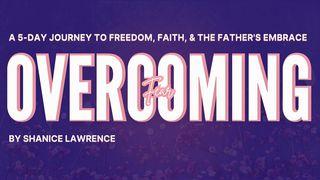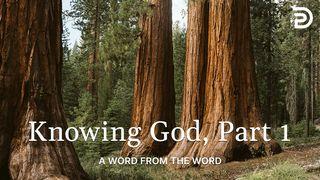Delve Into The ProphetsSample

DAY 13 – HABAKKUK
The book of Habakkuk begins with a dialogue between the prophet and God. Writing around the time that Nineveh fell, Habakkuk complains to God that violence and injustice persist in Judah, despite the chastening experience of Assyrian oppression. God responds that he’ll deal with the Judeans by a means “that you would not believe”: he’ll raise up the Babylonians to oppress the people just as the Assyrians did. This would have been hard to believe because the Babylonians hadn’t yet established themselves as imperial rulers and also because the people of Judah were just now coming up for breath after a century of oppression. Would God really plunge them right back under?
Habakkuk therefore poses a second question: why does God allow the wicked to “swallow up those more righteous than themselves?” Whatever the Judeans have done, he feels, it doesn’t compare with the ruthlessness the Babylonians are already showing. God replies again, explaining that in due time the Babylonians will be judged just like the Assyrians and that the righteous must await this outcome in faith and patience. To emphasize the inevitability of Babylon’s doom, God pronounces a series of five woes against this rising empire. In each case, the oppressor gets a taste of its own medicine. For example: “Because you have plundered many nations, the peoples who are left will plunder you.” Babylon is replacing Assyria more surely than it knows.
After the dialogue between Habakkuk and God, the book concludes with a “prayer of Habakkuk the prophet.” Even though this closing section is described as a prayer, it’s actually intended to be sung, since it bears musical notations. Habakkuk celebrates God’s past victories, alluding to the creation, the crossing of the Red Sea, and the sun standing still in Joshua’s day. He prays that God will do similar deeds in his own time. He resolves in the meantime to wait patiently, saying “I will be joyful in God my Savior.”
PRAYER: No matter what happens, Lord, I will rejoice in You. I will be joyful in You, my Savior.
Scripture
About this Plan

The Old Testament of the Bible is broken into three major sections, the second of which is known as the Prophets. If you didn’t know that, imagine all of the other interesting things you’ll learn in this reading plan as you explore the purpose, context, and background of this fascinating and unique part of God’s Word.
More
We would like to thank Biblica for providing this plan. For more information, please visit: http://www.biblica.com
Related Plans

Overcoming Fear: A 5-Day Journey to Freedom, Faith, and the Father’s Embrace

Parenting Through God’s Lens: Seeing Your Child the Way God Does

Rest for the Soul: 8 Days With Jesus

A Word From the Word - Knowing God, Part 1

An Encounter With Jesus

The Generosity Practice

Imposter Syndrome: You Are Who God Says You Are

From Need to Maturity

Ruth: A Redeemer Who Fills All Emptiness | Video Devotional
